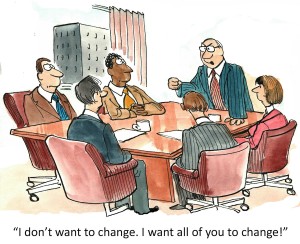3 Game-Changing Recruiting Trends for 2015

Trend No. 1: Millennial Workers Have Finally Arrived
According to Pew Research, in 2015, the millennial generation (ages 18-34) will overtake baby boomers as the largest living generation in the U.S. Bad luck for Generation X, as it seems like we never made it to the top of the pile, and we are not projected to surpass boomers in size until 2028.
What all this means is that the millennial generation is no longer the workforce of the future — they are the workforce of today.
Trend No. 2: The Modern Workforce Wants Self-Determination
What do the members of the biggest generational group want from their careers? Well, according to Forbes, the answers is, “Nothing.”
Millennials are not a generation of career nihilists: they do seem to want jobs and plenty of the normal trappings. However, only 13 percent of them want to climb the career ladder, and an overwhelming 66 percent of them want to freelance or set up their own business within a few years. Millennials are self-determining, independent, and entrepreneurial. They don’t want to be shackled to an organization in a traditional employee-employer relationship.
Trend No. 3: Online Freelance Hiring Is Now 14 Times Faster Than Traditional Hiring
Many of us may have guessed that hiring a freelancer was faster than traditional hiring, but we may not have taken the time to notice exactly how much faster it is. According to Elance-oDesk, the average time-to-hire for a freelancer is three days, while the average time-to-hire for a traditional worker is 43 days, making the freelance resourcing method about 14 times faster than traditional hiring methods.
The Game-Changing Moment
Combined together, these three trends create a perfect storm of sorts, which leads us to a game-changing moment in recruiting. The talent pool is now largely occupied by entrepreneurial millennials, and employers may no longer be able to attract and retain the cream of the crop by offering inflexible in-house positions. In fact, the continuing talent shortages should tell us just how difficult it actually is to find permanent talent.
If organizations want to survive, they’ll need to open up to a self-determining, independent, and transient talent market. As organizations start to move from permanent employee-based hiring models to a mix of employees and freelancers, they’ll learn to unlock the full potential of the current talent pool.
It’s time for organizations — especially those having talent acquisition problems — to build proactive talent strategies that incorporate a healthy mixture of freelance and permanent talent. Such talent mix should reflect the state of the candidate marketplace, making it easier for organizations to attract and retain talent.
I can identify five key steps to help organizations move toward this strategy:
- Profile the talent marketplace to understand the number of freelance and permanent candidates available in the demographics and industries that are relevant to your company.
- Set targets for freelance-to-permanent talent ratios that reflect the talent available for your company’s specific needs.
- Develop handbooks for internal hiring managers on how to source freelance talent.
- Train your managers on how to motivate and effectively utilize freelance talent.
- Incentivize managers to innovate their hiring practices and seek out more freelancers.
As the talent pool makes a fundamental shift to a more entrepreneurial mindset in 2015, organizations must shift their talent strategies to reflect this change if they want to remain attractive and relevant to modern talent.

